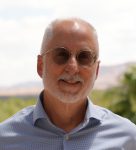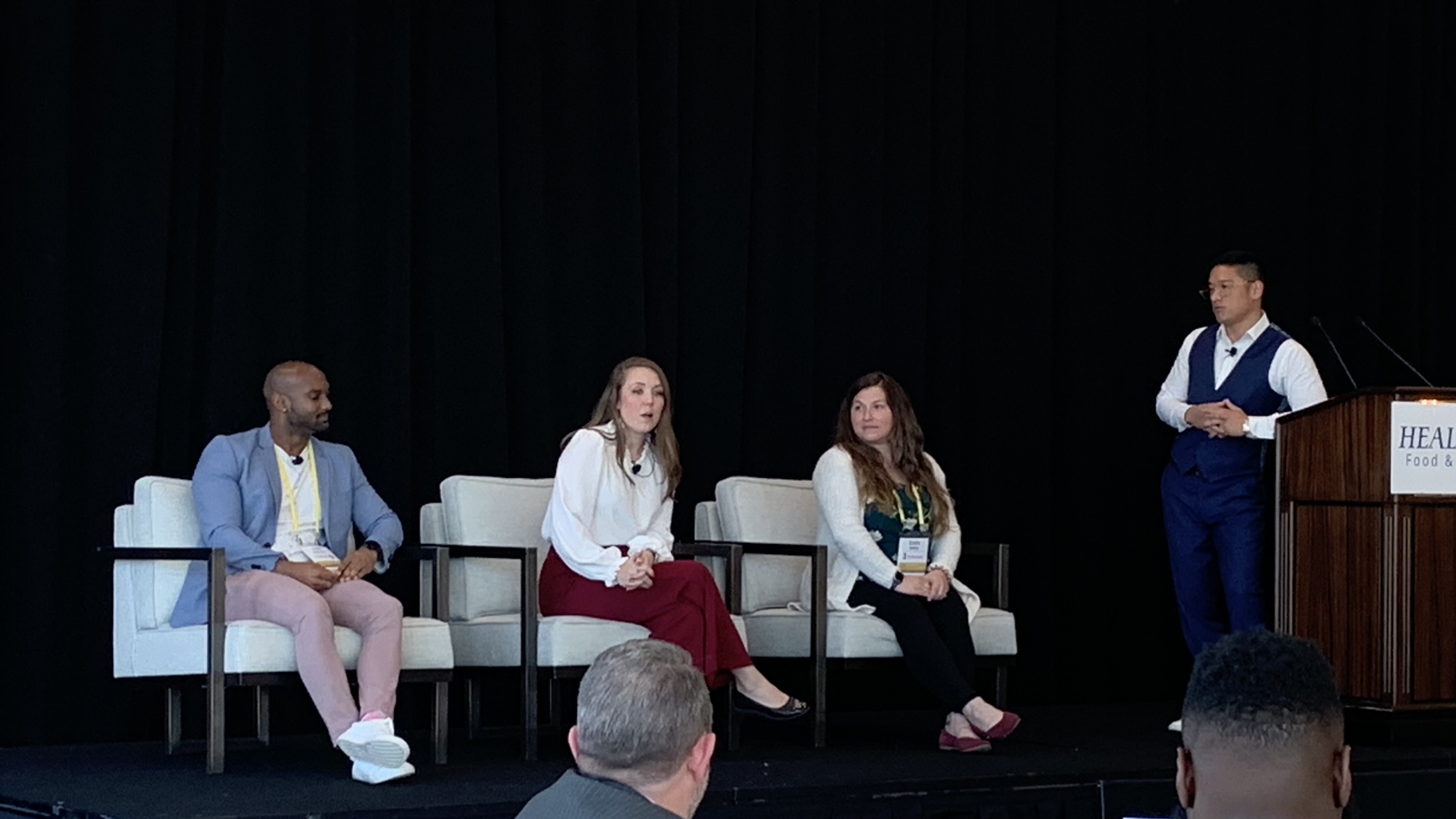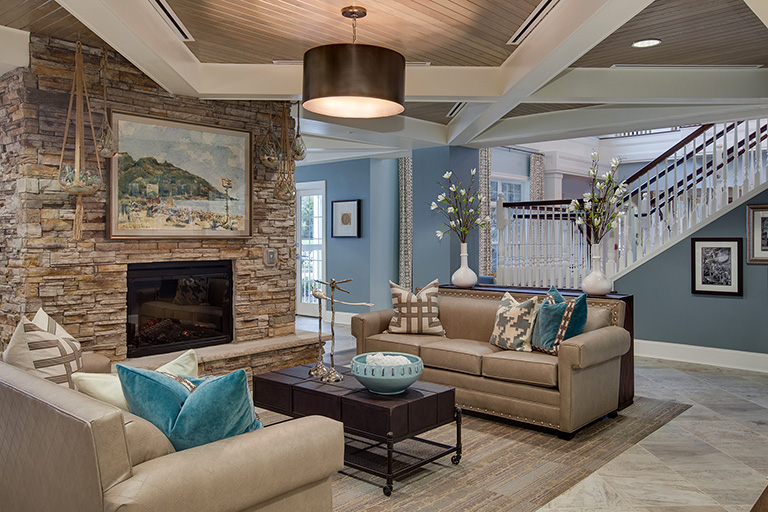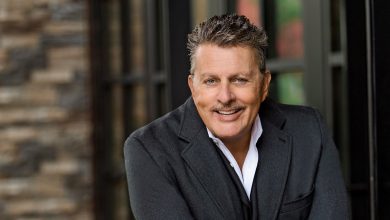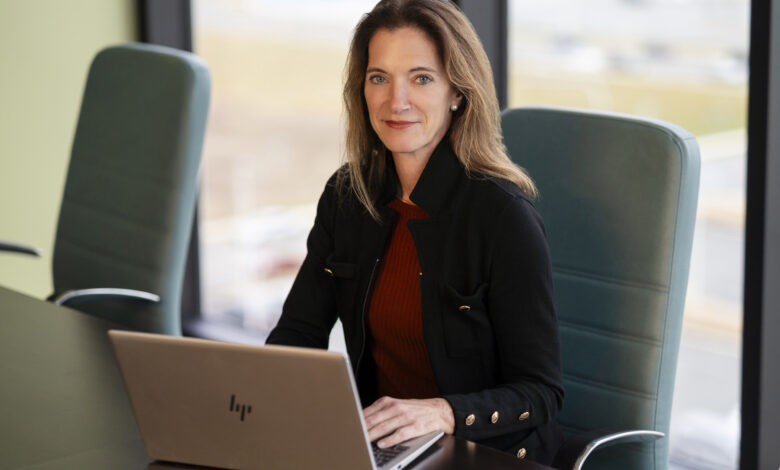
The CEO Series: Vassar Byrd, The Kendal Corporation, Part 1
By Jim Nelson | February 12, 2025
In early 2024, after 17 years serving at Rose Villa Senior Living, a nonprofit CCRC in Portland, Oregon, Vassar Byrd packed up and moved across the country to Delaware to join The Kendal Corporation as its CEO.
Swapping coasts and leaving a single-site community to head up an organization with 10 Affiliates is a lot of change all at once, so we checked in with Byrd in late 2024 to see how things are going at Kendal roughly a year into her tenure there.
SENIOR LIVING NEWS: One of the things that sets The Kendal Corporation apart are the company’s Quaker principles and values. What are those principles and values, and how are they applied in your communities and within the company?
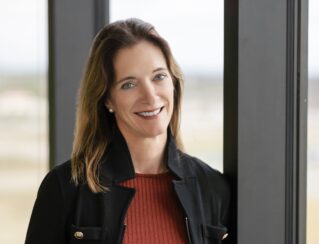 VASSAR BYRD: That’s one thing that attracted me to Kendal. I asked a lot of people, and for me, the most valuable component of it is the idea that you are genuinely and as a matter of practice, soliciting and valuing everyone’s opinion. You’re making a decision that requires consensus — and not all decisions do — you are intentionally making sure that everyone has a voice in the room because it makes a better decision. And my opinion of that is it directly speaks to diversity, equity, and inclusion. That is tremendously important to our place in the world right now, in particular. My go-to phrases are, “Invite the stranger to the table,” and “Hold your own opinion lightly.” Those are the keystones for me with Quaker values.
VASSAR BYRD: That’s one thing that attracted me to Kendal. I asked a lot of people, and for me, the most valuable component of it is the idea that you are genuinely and as a matter of practice, soliciting and valuing everyone’s opinion. You’re making a decision that requires consensus — and not all decisions do — you are intentionally making sure that everyone has a voice in the room because it makes a better decision. And my opinion of that is it directly speaks to diversity, equity, and inclusion. That is tremendously important to our place in the world right now, in particular. My go-to phrases are, “Invite the stranger to the table,” and “Hold your own opinion lightly.” Those are the keystones for me with Quaker values.
The other components that also resonate deeply is that they are very nonhierarchical; everyone is a respected and valued person in this room. I think that it’s important to get all perspectives on our issue and that everyone needs to be part of the solution. One of the things that you might think of, and I did before I was part of a Quaker organization, is that “Oh my goodness, consensus means unity. It takes forever. You can never make a decision.” No. Consensus does not mean unity; it means everyone comes to a consensus, and if people really can’t go forward, or they’re not feeling it, they can step aside, but the decision goes forward. It means that you spend all the time on the front end, and truly when the decision is made, everyone’s part of it, so you can implement immediately, versus a typical corporate decision where someone might ram through something and at the end, it fails and you never even know why because you didn’t take the time to include everyone in a genuine way. That was a big learning for me, to use that as a practice. You think you’re inclusive, but really, Quakers know how to do this in a way that I have not experienced before. I think that’s valuable to our place and time in the world, given where we are right now, politically and socially, and to be able to genuinely listen to other people makes for a better organization.
For me, the Quaker part of this organization is very important. We are not a religious organization. We are based on Quaker values, and those values are very resonant to our time and place. I feel strongly that it’s a real positive, and I’m very proud to be part of this organization for that reason.
SLN: One of the things that I love about the senior living profession is the incredible human quality that you don’t see in a lot of other industries. With that in mind, can you talk for a moment about Kendal Charitable Funds?
VB: Kendal Charitable Funds has been a small grant-making arm of the Kendal system. We are working to reform it as an arm for fundraising, to help the entire system to do bigger, more impactful work. As an example, funding a study on what are the actual best practices for living with dementia that is not based on a real estate decision to separate people by their diagnosis, but [rather] what do you actually need to do to help people integrate into a real community and live a great life? That would be a big, serious study that we’re interested in thinking through, and we would ask for money to help us do that; we have the Affiliates and the folks that would be ready to help be part of that study, so I think we’d like to shift the focus of KCF just a little bit and be a little more integrated into the system, rather than something that stands apart.
SLN: Staying with the idea of the human quality of this industry, one of the things that has really vexed this industry for some time is the gaping hole in the middle market. I’ve talked to some companies that are making that a big focus, and I understand that’s something that you’re focusing on as well.
VB: I do believe we do a great job with traditional CCRCs; [they’re] a great part of the senior living continuum and should be an option for everyone who can afford it. The problem is that even with the best of intentions, with the cost of construction now it’s difficult to build anything that doesn’t require a $1 million entrance fee, and that is not really part of the Quaker value system. So, we are thinking about both our own values, which are to serve a broader spectrum of humanity, and the demographic reality that there’s a whole lot of older adults who will need community, at many different income levels, in the future. We’d like to serve more of them. I think it’s important to start thinking about that.
We are currently working on a prototype community design; we’re trying to not think of it as CCRC “light,” because that always feels “less than.” What is it as a new thing that is more of a contributory partnership opportunity with the residents? Perhaps there’s a service requirement for residents and there is not as much of a focus on amenities; maybe there [are] less clinical services and more of a healthcare navigator, so that we’re hooking you up to existing resources; maybe the dining services area, which is a place where you can spend a lot of money as a traditional CCRC, maybe you make sure the community is in an environment where there’s plenty of food options, so you offer a community kitchen, or you do something that is less heavy duty, institutional, I don’t know, heavy cost. Maybe there’s a different way because what we’re doing is creating community; we don’t need to build an entire city to do that. Creating community is the connections between people. So, how do we enforce and grow and support connections between people? I think part of that starts with the expectation when you move in. If you’re moving in and you’re thinking it’s going to be a hotel, that’s a whole different deal. If you’re moving in and you’re thinking, “I’m moving with a group of people, and we’re going to build this community garden together, and we’re going to do some cooking together, and we’re going to tutor the kids in the school next door together, and we’re going to help staff the farmers market down the road,” that’s community in a big “C” way that does not require a lot of money.
We are trying to think of how to provide the safety net that people need. So, what’s the safety net? My observation in the long-term in senior living is that half the battle with healthcare is having someone to help you figure out: “Where do you go? Who’s your doctor here? When’s the appointment?” That’s overwhelming when you’re 85 and you’re sick; that’s more than having the thing onsite, it’s, “Who can help me figure out how to make the best choices and to follow through on my healthcare plan?” So that’s a healthcare navigator, not necessarily having your own stand-alone — certainly not a SNF — but even an assisted living. Maybe that’s not the first thing you build. Maybe that comes later, or we think through how we do that in a more integrated way. My opinion is very strong around dementia: I believe in dementia inclusion, and I think that the part of being human that those of us who are well do not get to experience is helping those of us who are struggling with whatever it is. That is really what being in a community means to me — we’re on the same road. You might have a problem today, I might have a problem tomorrow, whatever it is, we’re helping each other, and that’s an expression of our humanity that you only get [in community].
[Part 2 of my conversation with Kendal’s Vassar Byrd is coming soon.]
